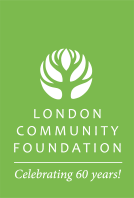When George Bernard Shaw noted that, “there is no love sincerer than the love of food,” he could easily have been speaking about the London region - we are surrounded and motivated by some of the best food in the world.
The problem is that we have been experiencing great difficulty in organizing that bounty. For years we have witnessed the growth of groups emphasizing markets, organic food supplies, Carolinian forests, rooftop gardens, collective kitchens, to name only a few, and they have succeeded in driving the conversation about our collective need to regard food with more respect, sustainability, and even a key generator of our future economy. The one word missing in that list is a fundamental reason we have had troubled capitalizing on our local resources - coordination.
London has its own food charter, networking associations, and anti-hunger activists that have raised community consciousness of food’s importance to our future. Yet we are experiencing significant difficulty getting there by convincing politicians, citizens, institutions, and even media, to initiate the changes necessary to turn London into a true food city - we want it, but we’re just having trouble getting there.
We’re not alone, as other cities can attest. Community Foundations Canada (CFC) has emphasized food - its growth, storage, distribution, nutritional and social value - as the key focus of its 2013 Vital Signs Report and recognized the London Community Foundation (LCF) for its efforts to combine various initiatives in order to leave a larger food influence in our city and region. In the past two years, the Foundation has supported numerous initiatives, involving breakfast programs, networking, and education.
Two new initiatives supported by London Community Foundation have raised the possibilities of overall food success even higher. Wondering why the London Food Bank was required to feed 3,600 families a month while being surrounded with vast acreages of farmland, London Community Foundation helped to launch the London Poverty Research Centre, who first important task is to explore ways of getting more nutritious and locally-produced foodstuffs closer to the locale of low-income families, thereby reducing the demand for food bank assistance. The Poverty Research Centre is a powerful partnership among the Sisters of St. Joseph, the London Food Bank, the London Community Foundation, and Kings University College that has opted to make access to better food its first project.
And the Foundation has been pushing for the establishing of a food policy council to cover all aspects pertaining to food in our city. To accomplish that goal, the Foundation has partnered with the City of London and the London Middlesex Health Unit to provide it both the impetus and resourcing for taking on the huge task of making sure that proper food policy helps to coordinate and enhance all the various initiatives going on in the city at the moment.
Demand for London Food Bank services has risen 40% in just the last five years. How can that be, considering we are a blessed area surrounded by quality food? As a community we need to answer that question, not by more queries, but action. The time has come to coordinate all of our efforts so that food itself can become one of the defining characteristics of this great city. But that takes leadership and influence - two qualities the London Community Foundation is now putting to good use.
Food Insecurity
In 2011, the proportion of households in the Middlessex-London Health Unit region that were moderately or severely food insecure was 6.9%. This was a rate 0.9% below the national rate of 7.8% and 0.8% below the provincial rate of 7.7%. (Statistics Canada)
Cost of a Nutritious Food Basket
The Nutritious Food Basket survey, conducted annually by the Middlesex-London Health Unit, has shown consistently that people with low incomes do not have adequate funds to afford healthy eating, after meeting other essential needs for basic living. In 2013, the cost of the NFB was highest for a Family of 4 on OW, representing 37% of the family’s monthly income. (The Real Cost of Eating Well in Middlesex-London, Middlesex-London Health Unit, 2013)
Glen Pearson is the co-director of the London Food Bank and executive director of Canadian Aid for South Sudan. Glen is a regular columnist for the London Free Press.


